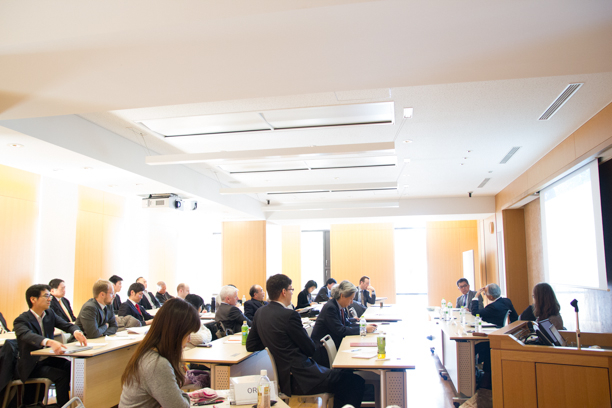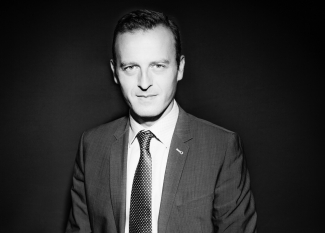
Practical information
Recent tensions in Europe and Asia have underscored once more the question of geopolitics in the context of a highly interconnected, “globalised” world economy.

In both continents, security questions are currently intertwined with those pertaining industrial and trade policies, resulting in paradoxical relations of interdependence between countries belonging to different security alliances, and displaying different conceptions of (geo)political order. Furthermore, the spread of terrorist networks and the multiplication of asymmetrical threats urges the re-organisation of the very way in which security is conceptualised.
The first IFRI-PARI (Policy Alternatives Research Institute) joint workshop intends to explore this conundrum from European and Asian perspectives, paying particular attention to the issue of energy security within the broader landscape of a changing security definition, and reflecting on the role of great powers between strategic competition and possibilities of cooperation, and of regional integration.
Program
Session 1: Challenges regarding energy security and governance in Europe and Asia
Session 2: Security challenges in Europe and Asia
| 09:00-09:10 | Opening Speech by PARI Director Prof. Ichiro Sakata |
| 09:10-09:50 | Session 1—Keynote Speeches PARI representative Prof. Nobuo Tanaka IFRI Representative Dr. Thomas Gomart |
| 09:50-10:10 | Session 1—Panellists' Presentations Dr. Ingrid Barnsley (IEA) IFRI Representative Dr. Carole Mathieu Moderator: Prof. Hisashi Yoshikawa |
| 10:10-10:40 | Session 1—Discussion |
| 10:40-11:00 | Break |
| 11:00-11:40 | Session 2—Keynote Speeches PARI representative Prof. Kiichi Fujiwara IFRI Representative Dr. Thomas Gomart |
| 11:40-12:00 | Session 2—Panellists' Presentations PARI representative Dr. Yee-Kuang Heng Moderator: Dr. Roberto Orsi |
| 12:00-12:30 | Session 2—Discussion |
| 12:30-13:00 | Concluding remarks from both PARI and IFRI From PARI: Prof. Hideaki Shiroyama From IFRI: Dr. Françoise Nicolas |
Click here to read the report.
Participants from IFRI:
Thomas GOMART, current Vice-President for Strategic Development
Françoise NICOLAS, Director, Center for Asian Studies and specialist of Asian economic integration
Marc HECKER, research fellow, Center for Security Studies, specialist of terrorist threat and asymmetric warfare
Carole MATHIEU, research fellow, Centre for Energy, specialist of EU energy policy, energy security of supply and climate change policies
Participants from PARI:
Ichiro SAKATA, Professor at the Graduate School of Engineering and Director of the Policy Alternatives Research Institute (PARI)
Hideaki SHIROYAMA, Professor of Public Administration and Dean of the Graduate School of Public Policy (GraSPP)
Kiichi FUJIWARA, Professor of International Politics and Director of the Security Studies Unit
Hisashi YOSHIKAWA, Professor at the GraSPP and member of the PARI
Nobuo TANAKA, Professor at the GraSPP
Ingrid BARNSLEY, Head of International Partnerships and Initiatives, International Energy Agency.
Yee Kuang HENG, Professor at the GraSPP and Assistant-Dean of Lee Kuan Yew School of Public Policy, National University of Singapore
Roberto ORSI, Lecturer at the GraSPP, researcher at the Security Studies Unit
Speakers
Other events

From Ambition to Action: Exploring Technological Partnerships with India
The 16th EU-India Summit, held on January 27th in New Delhi with European leaders António Costa, Ursula von der Leyen, and Prime Minister Narendra Modi, marks a significant milestone in deepening EU-India relations. At the same time, official bilateral visits from EU member states are on the rise, including that of the French President, who visited India in February to participate in the Artificial Intelligence Summit. As India asserts its technological ambitions and seeks to reduce its dependence on China, Europe is stepping up its efforts to diversify its strategic partnerships.

The Enlargement of the European Union: A Strategic Choice? France, the Western Balkans and the EU in an Uncertain Geopolitical Context
Russia’s war against Ukraine has brought the enlargement of the European Union back to the centre of European strategic debates. In this context, the Western Balkans have regained heightened visibility in discussions on the continent’s security, at a time when the international environment is marked by a growing number of destabilising factors.












